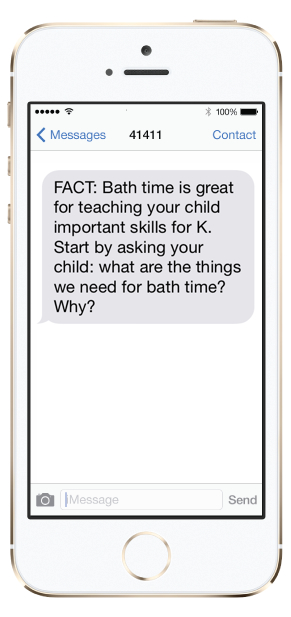Stanford University Early Literacy Program Finds Text Messaging Increases Parent Involvement at Home
How can we increase parental involvement at home in order prepare children well for reading and writing in kindergarten? For researchers Ben York and Professor Susanna Loeb of Stanford University, the answer turned out to be texting.
 Parental Involvement in Early Education
Parental Involvement in Early Education
Research studies have shown that by age 3, children of affluent parents are exposed to about 30 million more words than children of low income parents. This language gap means children of low income parents face bigger challenges when it comes to entering kindergarten and learning to read.
Most everyone has a cell phone and can get texts, including the traditionally disadvantaged families who may not have access to the Internet.”
– Ben York, Stanford University doctoral student
“Most parenting interventions, like workshops, are ineffective or take up a lot of time,” said York. “Other programs like home visitations or those centered on doctor visits are either costly or not widely accessible. When researching potential approaches to enhancing parents’ home literacy practices, we came across a rapidly emerging experimental literature in healthcare indicating that the frequent provision of carefully worded texts can lead to improvements in a range of outcomes. We thought that texting might work with parents as well because good parenting — like health behaviors — can be broken down into small steps that are easy to achieve.”
Text Tips for Parents of Preschoolers

York and Loeb saw an opportunity to use text messaging to increase parent involvement and promote positive parenting. In 2013, they launched READY4K!, an early literacy text messaging pilot program for parents of preschoolers in the San Francisco Unified School District.
Using TextMarks Mass Text Messaging service, the team sent text messages three times a week for eight months to 440 families who opted in to the program during the preschool enrollment process. Each week, York and Loeb focused on a particular skill and included texts that promoted education facts, fun and engaging tips to try at home, and growth tips designed to build on skills already learned.
Text Messaging Increases Parent Involvement at Home and School
Parents liked receiving the texts overall and reported doing more literacy related activities at home, while teachers also reported more parental involvement at school. The children of parents who received the literacy text messages scored higher on a literacy assessment than children of parents who received placebo texts containing general school announcements.
Text messaging works as a vehicle for changing the behavior of parents due to the many benefits of SMS, including widespread use and accessibility, extremely low cost and ease of scalability. “Most everyone has a cell phone and can get texts, including the traditionally disadvantaged families who may not have access to the Internet,” said York.
Sending texts to hundreds or even thousands of parents can be done easily with a group text messaging service. “We found TextMarks to be very easy to use and reasonably priced. Our overall experience was very good.”
Interested in learning more about TextMarks Mass Text Messaging and how it could help with your education program? Call us at 800-696-1393 or email tmsales@textmarks.com.
















